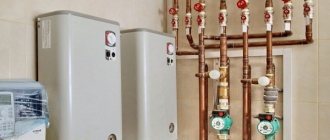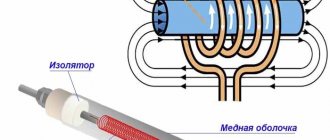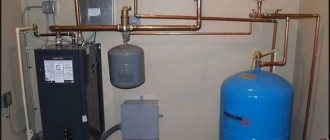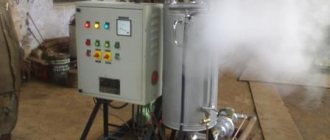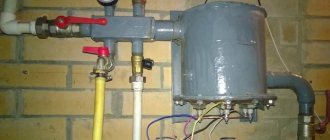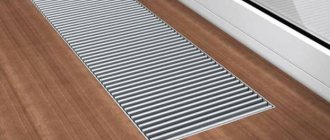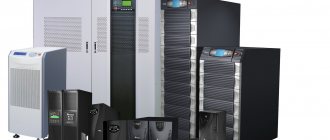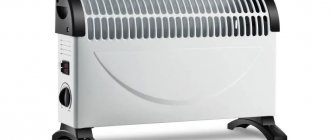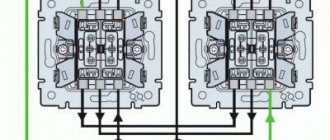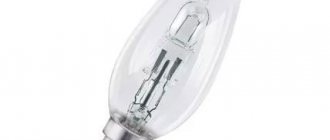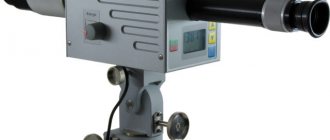Advantages of electric boilers
- Simple design, minimal heat loss and the highest efficiency during the heating season - up to 99.5%.
- There is no need to install it in a separate room at home or cottage.
- Electricity, as an energy carrier, does not need to be delivered or stored, which cannot be said about gas or coal.
- Electric heating boilers are safe: if there is a water leak, the electrical circuit will open and the electric boiler will turn off.
- Environmentally friendly, no chimney is needed, since no harmful substances or decomposition products are released during operation.
In the absence of hot water supply, you can choose a double-circuit heating boiler, which is also used as a heating boiler, which is especially important for a summer house or private house.
The consumer will have hot water available around the clock. See also -
Long-burning solid fuel boilers - ranking of the best 2022
TOP 3 best electric boilers for heating
- Protherm Skat 9 KR 13
- EVAN EXPERT 9
- MORA-TOP Electra Comfort 15K
How does an electric boiler work?
In order to choose the right electric boiler for heating your home, you need to know its characteristics and make sure that they meet the network requirements. Any electric heating boiler for a home includes the following elements:
- Frame. The outer shell, inside which all the boiler parts are assembled;
- Heat exchanger. Heater and container with coolant;
- Control block. Process control, monitoring and regulation system.
Diagram of an electric boiler with a heating element
Calculating the power of an electric boiler is the main indicator of choice
Let's look at the most important characteristics of electric boilers. Power is the main one; its choice depends not only on the heating area, but also on the presence of an insulating layer and insulation, wall material, and the quality of other building materials.
Power is provided by a heating element, electrode or inductance coil (depending on the type of boiler). It is defined in kilowatts (kW) and ranges from 2 to 60 kW.
Sales consultants use a fairly simple formula for calculating the power of an electric boiler; the basis is 1 kW of electric boiler power for every 10 square meters. m of premises. Let's say we have a private house with an area of 100 square meters. m, to heat such an area we will need an electric boiler of 10 kW.
Important:
Consider the heat loss of your home. If the house is not insulated enough, the windows are bad, the power of the electric boiler should be chosen more than that recommended for your area.
The performance of the heating device is taken into account when calculating the thermal engineering of a private home, as well as when calculating the power of hot water supply. This will allow you to choose an average value in order to compensate for the heat loss. See also -
Which infrared heaters are better to choose - 2022 rating
No. 1. Advantages and disadvantages
An electric heating boiler works extremely simply. In it, electrical energy is converted into thermal energy. When the boiler is turned on, the heating elements heat the coolant. The latter enters the living space through a system of pipes and radiators and heats the air in it. In the simplest and most common version, the usual heating element is used as a heating element, but there are also induction and electrode boilers in which heating is carried out somewhat differently. The only thing that remains unchanged is the power source – electricity. Many boiler models are equipped with a monitoring and control mechanism.
Despite the fact that electric boilers can hardly be called an economical source of heat, they are very popular, and there are many reasons for this. The advantages of electric heating boilers include:
- versatility. The unit can be installed wherever there is electricity ; no permits from technical supervision authorities are needed. Today, electric boilers are used both in private homes and apartments, as well as in commercial and industrial premises;
- low cost compared to gas and solid fuel boilers;
- high efficiency , which reaches 95-99%;
- ease of installation. Electric boilers are small in size , and when connecting them there is no need to build a chimney;
- ease of operation and temperature adjustment. Most models are equipped with convenient control systems and thermostats, so the user just has to press a few buttons or turn a lever - he won’t have to constantly run to the boiler, control its operation, or, worse, add fuel. Since the boiler perfectly controls its operation, its efficiency increases;
- safety . There is no open fire in electric boilers, and no flammable fuel is used. Plus, well-thought-out automation is used, so the likelihood of emergency situations compared to other types of boilers is sharply reduced, if, of course, the installation was carried out correctly;
- compactness, so installation of such a unit is possible even in the smallest rooms;
- environmental friendliness, because no harmful emissions are generated during boiler operation;
- noiselessness;
- no need for constant monitoring of operation (you can leave the boiler unattended) and frequent maintenance. Solid fuel boilers, for example, require constant care and cleaning;
- a wide range of. There are models on the market with different power (from 2 to 60 kW or more) and functionality (single-circuit and double-circuit).
disadvantages :
- high cost of operation. Despite advanced automation and energy saving systems, electric boilers are still quite expensive to operate. In most cases, it is not profitable to use them for heating large rooms. Often such boilers are used as a backup heat source ;
- dependence on the availability of electricity. If the region experiences frequent power outages, then this heating option is not suitable;
- the need for special three-phase wiring if a boiler with a power of more than 12 kW is used. Some experts recommend using a line with three phases even when connecting a boiler from 6-7 kW.
Despite the existing disadvantages, electric boilers find their buyers. Moreover, if you carefully analyze the conditions at the site where you want to create a heating system and choose the right electric boiler, you will be able to enjoy the positive qualities of these devices to the maximum.
Detailed calculation of electric boiler power
The power for heating a private house, cottage or apartment with an electrical heating appliance is equal to thermal power. To calculate it, follow a few simple rules:
- for heating 1 cu. m of house or cottage will require about 40 W of power;
- for each of the windows you need to add 100 W, for the door - another 200;
- these data are averaged and depend on climatic conditions: residents of the Far Eastern and Siberian regions multiply the final number by 1.5–2, the coefficient in the middle regions of the Russian Federation is 1.2, and the southern regions use a coefficient of 0.7–0.9;
- for a house or cottage, the calculation result is multiplied by another 1.5, which is associated with heat loss due to the structure of the roof and floor surface (especially in the absence of a basement).
Let's give an example for a house in the south of the country with an area of 80 square meters.
m., with a ceiling height of 3 m, six window openings, one entrance door. House area – 80 sq.m. m. must be multiplied by 40 W, then multiplied by 3 (ceiling height indicator), add 200 and 600 W (door and windows). We multiply the resulting value by the private house and regional coefficient - 0.7 and 1.5. As a result, we get 10920 W. See also -
Comparison of the capabilities of electric boilers and convectors
Which electric boiler is the most economical?
The criteria by which heating boilers for a private house using electricity are selected are as follows:
- heating area, on which the boiler power will depend;
- characteristics of the premises;
- equipment prices;
- size and weight of the heating boiler;
- life time;
- boiler efficiency.
We will choose from the following types of electric boilers for heating:
- Induction. The main working unit of such boiler boilers is the inductor. These boilers have great power, but are large in size and high in cost.
- Heating elements. The coolants in such boilers are heated by thermoelectric heaters (TEHs), working with power controllers and temperature sensors. The heating element heats the water, which transfers heat to the room. The disadvantage of such boilers is the deposit of scale, which interferes with normal operation and disables the heating elements.
- Electrode. The most economical boilers are approximately 40% more economical than heating elements. The advantages also include small size, fast heating of water and the absence of scale during operation.
Electric boilers, in addition to the listed types, can also be:
- Wall or floor. Wall-mounted boilers, as a rule, are low-power, and are used for heating country houses;
- Single- and three-phase;
- Single and double circuit.
The final decision on which most economical electric boiler to choose for your home depends on your living conditions. In my opinion, this is an electrode boiler, which is connected to a standard electrical network and uses water or non-freezing liquid as a coolant.
Diagram of the electrode boiler
Installation Features
A wall-mounted electric boiler for low-power heating (for example, the “Mini” or “Economy” series) has a single-phase voltage of 220 V. For devices with a voltage of 380 V, a three-phase voltage is required.
For a regular household outlet, you can choose a low-power wall-mounted heater of the Economy or Mini class, which consumes no more than 3.5 kW. The power limit is calculated as follows: 16 A – current strength in home sockets. With an average voltage of 220 V, we obtain the maximum power - 3520 W (220x16).
Despite the fact that the technical characteristics of mini or economy boilers up to 12 kW allow connection to a single-phase power line, experts recommend connecting models from 6 kW to a 380 W power line.
Before installing a wall-mounted electric boiler, a cable with a recommended cross-section of 1 mm and a design load of 8 A is drawn from the switchboard. Floor-standing boilers are more productive; owners of houses with a large area should choose this type of boiler.
How to make an electric boiler with your own hands
Electric boilers for heating a private house at 220 volts are often made independently - it is not difficult if you have the necessary materials and skills. The simplest boiler is a metal container in which heating elements are installed. Usually they make their own boilers with a power of 6 kW - such equipment is enough to heat a small apartment or country house. A DIY boiler will cost at least half as much as a purchased one. You can make a heating or electrode boiler yourself.
Materials for making a boiler using heating elements
For such a boiler you will need a tank of any shape in which the water will be heated by heating elements. The tank can be made from a 150 mm pipe. For a small boiler, 2-3 heating elements are enough, each costing about $10. Materials:
- steel pipe 150 mm;
- round plates l. 150 mm, 2 pcs.;
- nozzles no less than the contour - 3 pcs.;
- heating elements;
- nuts;
- automatic air vent;
- ball valve
Materials for making an electrode boiler
To make an electrode boiler with your own hands you will need:
- pipe 50 mm;
- steel bar 20 mm;
- flange and coupling with internal thread (2 pcs.);
- any dielectric;
- sealing rubber;
- bolts, nuts.
Detailed manufacturing instructions are presented on many websites on the Internet, so we will not repeat ourselves. There you can also see descriptions and connection diagrams for a simple control unit with a temperature sensor.
Boiler heating element
The most common type. The wall-mounted device is a tank in which several heating elements are placed. The choice of this mini-boiler is optimal for an apartment or house, since it is economical due to the multi-stage control mechanism and is easy to maintain. Economy models are the cheapest compared to induction and electrode models. They are also used in conjunction with water heaters. The wall-mounted boiler has manual and automatic modes. Selecting the latter sets the desired temperature at night. A disadvantage of heating element devices is the appearance of scale, which reduces productivity if it is not dealt with.
Often, a wall-mounted mini-boiler has a circulation pump to stimulate the movement of coolant. In modern models, antifreeze can be used instead of water.
How to choose an electric boiler: types, differences, principle of operation
- What is an electric boiler
- Advantages of electric boilers
- Types of electric boilers
- Differences between heating elements, electrode and induction boilers
- Electrode boilers
- Induction boilers
What is an electric boiler
An electric boiler is a heating device that converts electricity into heat. Electric boilers are used to heat residential, commercial and industrial buildings.
Advantages of electric boilers
- Electric boilers have a number of advantages over boilers using other types of fuel
- High efficiency - the efficiency of an electric heating boiler reaches 99%, while other heating devices produce from 60 to 93% of heat.
- Possibility of installation in any room. Electric boilers are much more compact and lighter than other heating devices; they do not require a special room for placement and are fireproof, since they do not have an open flame. They are often mounted on the wall - in the bathroom or kitchen, saving space.
- Comfort in use. They do not require special maintenance - cleaning, delivery and storage of fuel, installation of a chimney, because do not produce combustion products.
- Electric boilers have a high degree of automation of operation, the possibility of remote control and stepwise regulation of the boiler power.
- Almost all modern boilers are equipped with a circulation pump and expansion tank, as well as safety group elements.
- Can be used as an additional heat source
- They will be the optimal solution when there is no access to the possibility of connecting to the gas main.
It is worth remembering that electric boilers directly depend on electricity, so you should buy them only if you have sufficient electrical power, if you do not have power outages.
Types of electric boilers
What types of electric boilers are there?
Electric boilers vary in power:
- 6 - 30 kW - suitable for heating apartments and private houses;
- 30 - 100 kW - semi-industrial equipment;
- From 100 kW - industrial electric boilers.
According to the voltage in the connected network, boilers are single-phase (220 V) and three-phase (380 V). Low-power models are usually universal - they can operate from both types of networks.
By design, electric heating boilers are divided into heating element, electrode and induction.
- In heating element electric boilers, the coolant is liquid, which is heated in flow mode due to the presence of heating elements. These are cheap boilers that can work with various types of coolants, including non-freezing liquids. They have the ability to regulate power consumption by turning off or turning on a certain number of heating elements. But in boilers with this design, scale gradually forms, which leads to a deterioration in heat transfer and an increase in electricity consumption.
- In electrode boilers, the coolant is water, heated by an electrode, which gives the liquid an electrical charge, which causes its resistance and provokes the release of ions. Electrode electric boilers are compact, inexpensive, safe in case of water leakage, and have a smooth rise to rated power. But these boilers consume only alternating current, place high demands on the electrolytic characteristics of water and heating devices, and require mandatory grounding and installation of a circulation pump. In addition, the electrodes will have to be replaced periodically. Another disadvantage of such boilers is that they require control over the electrical conductivity of the coolant.
- The operation of induction boilers is based on the principle of induction heating. The inductor is hermetically sealed and does not come into direct contact with the coolant. Induction boilers eliminate damage to the heating element and leaks, and there is minimal scale formation in them. Electrically safe and can use any coolant. But the price of these electric boilers is higher than that of electric heating boilers with a different design.
Differences between heating elements, electrode and induction boilers
Manufacturers and sellers of heating devices always try to manipulate the efficiency indicator in their favor. We just need to understand that for all types of boilers it differs slightly, and amounts to 95 - 98%. All statements that some manufacturer managed to create a super-economical boiler due to the use of special innovative technologies are nothing more than an advertising gimmick aimed at increasing sales.
No one has yet succeeded (and will never succeed) in deceiving the physical law of conservation of energy, which states that any energy cannot appear from anywhere, but can only be transformed from one type to another. In our case, from electrical energy to thermal energy.
Heating boilers
Advantages of heating element boilers
- Simple device and installation
- Low cost
- Capable of working with various types of coolants, including non-freezing liquids.
- They provide the ability to regulate power consumption, depending on specific needs, by turning off or turning on a certain number of heating elements.
- Maintainability - in case of malfunction, heating elements can be easily replaced
The disadvantages of heating element boilers include
- Scale formation on heating elements, which leads over time to a deterioration in heat transfer, and, consequently, to an increase in electricity consumption.
- Relatively large overall dimensions.
Electrode boilers
Advantages of electrode boilers
It is worth considering, like any other boiler, from the point of view of their inherent advantages and disadvantages. The advantages of electrode boilers include:
- Compactness. These boilers are really very compact and practically invisible in the overall design of the system.
- Smooth boiler output to rated power.
- Low cost
- Impossibility of an emergency in case of water leakage. If water disappears from the system, the boiler simply will not work without causing any dangerous consequences.
Disadvantages of electrode boilers
- Consumes only alternating current, with direct current electrolysis of water will occur.
- High demands on the electrolytic characteristics of the coolant; when they change, the quality of work (heat generation) decreases sharply. It is necessary to control the electrical conductivity of the coolant.
- Requires mandatory grounding (just like any heating device with a water heating element). At the same time, the risks of electric shock in the event of an insulation breakdown are higher than with heating element water heaters.
- The heating temperature of the coolant should not exceed 75°C, otherwise the energy consumption of the boiler will seriously increase.
- The formation of scale on the electrodes reduces the power of the boiler because it prevents ionization of the coolant.
- High demands on the quality characteristics of heating devices.
- It is mandatory to equip the heating system with a circulation pump.
- Wear of electrodes caused by alternating voltage, requiring their periodic replacement.
- In an air-filled heating circuit containing a coolant-electrolyte, corrosion processes will accelerate many times over.
- In a single-circuit system, the use of heated water for domestic needs is unacceptable.
- Commissioning work requires the involvement of specialists - it is almost impossible to independently reduce the ohmic resistance of water while increasing its conductivity to the optimal level.
- The electrical conductivity of the coolant changes during operation; it is necessary to control it, which means having the appropriate knowledge and equipment.
Induction boilers
Advantages of induction boilers
- No heating element. An important factor that eliminates breakdowns due to failure of the heating element.
- There is a complete absence of detachable connections in the boiler design, which eliminates leaks and the need for any repairs and maintenance.
- Scale formation is reduced to a minimum.
- Use of any coolants, including non-freezing liquids.
- Electrical safety.
Disadvantages of induction boilers
- High cost compared to heating element and electrode boilers.
- Relatively large dimensions.
- High installation cost
Based on the balance of advantages and disadvantages, we consider classic heating element electric boilers to be the best option for wide application.
Design and principle of operation of an electric heating element boiler
Several tubular electric heaters (TEHs) are located in a thermally insulated container. The circulation pump pumps coolant into the container, and heating elements heat it. Next, the hot coolant enters the heating system through the outlet pipe and transfers heat to heating devices - radiators, convectors.
The heating elements can be turned on simultaneously to achieve maximum heating power, or separately for stepwise adjustment.
How to choose an electric boiler for heating your home
The first thing you should pay attention to is the boiler power . It is simply believed that 1 kW is capable of heating 1 sq.m of area, but this is a rough calculation - to be sure that there will be enough power, you will not freeze or overpay for extra kilowatts - it is better to make a thermal calculation. Next, you need to decide on the purpose of the electric boiler. If you only need heating, any single-circuit electric boiler will do. If you also need to prepare hot water, an electric boiler with a built-in boiler (or you can purchase and connect an indirect heating boiler to a single-circuit boiler). Depending on the budget and the desired capabilities of the device, the boiler equipment is selected - safety devices, automation, etc.
If you have not found the answer to your question, please leave it in the comments below the article - and we will definitely answer you.
Electrode boiler
The so-called “direct action” unit, since there is no heating element. It heats due to the flow of alternating electric current through the coolant with a frequency of 50 vibrations/second. Heating is carried out due to the rapid movement of water ions. Such an electric boiler is safe, since if the system leaks, it will automatically turn off.
The disadvantages include the increased requirement for water, which must have the required resistance. Periodic replacement of the electrodes is also necessary; they dissolve over time. To avoid the risk of electric shock, heating with an electrode unit is only possible if there is good grounding.
How to choose the right electric boiler
To choose an electric boiler, first of all you need to determine the power of the heating device for your home - at the rate of 1 kW per 10 sq. m. of insulated room with ceilings up to 3 meters.
adjust power to reduce your costs.
When choosing a boiler, you need to pay attention to the equipment. Almost all boiler models are equipped with a circulation pump and an expansion tank, allowing the boiler to be used for heating a room and preparing hot water at the same time
The latest models have different levels of protection against negative influences - a filter for cleaning the coolant, operation in summer and winter modes, anti-freeze protection devices, etc.
Choosing a thermostat
In order to achieve economical energy consumption, it is necessary to choose the right thermostat for the electric boiler. Using a thermostat, you can maintain different temperatures in individual rooms. To do this, you need to set the required value, and the system will track it automatically.
Types of automation
Mechanical automation includes primitive control devices - thermal relays, bimetallic thermostats, contactors of the 2nd, 4th, 6th magnitude, etc.
- the advantages of mechanical automation are low price;
- Cons: inaccurate heating control and strong popping noises during operation.
This type is usually used in non-residential, warehouse and industrial premises.
Electronic automation is much more economical than mechanical (precise heating control) by about 20% and has a lower noise level. Electronic thermostats maintain the specified temperature automatically, taking into account additional heat sources. Most often, automatic thermostats are installed at the heating devices of tall buildings on the upper floors, since the air on the lower floors is always colder and therefore the heated air rises from bottom to top. It is practical to install thermostats in rooms where there are additional heat sources, for example, in the kitchen.
amount of heat, save up to 20%
The most common are liquid thermostats. They are more expensive, but their service life is much longer - 20 years and they are more accurate in operation. When choosing a gas-filled thermostat, choose the option with a remote sensor, because the built-in sensor will require a more rigid installation.
Digitally controlled thermostats control the operation of heating systems, heating devices, ventilation and hot water supply systems. They are used for a comprehensive solution - control of systems that involve many parameters - humidity, time, temperature.
What should you consider when choosing and installing an electric boiler?
To determine which electric boiler is best to choose, you need to consider the following factors:
- the estimated heating area of the house, cottage, apartment;
- type of room;
- weight and dimensions of the device;
- service life;
- efficiency indicator;
- price limit.
Installation method
Depending on the installation method, you can choose:
- electric boiler with a lower location of pipes (inlet and outlet);
- electric boiler with a lower inlet pipe and an upper outlet pipe.
Wall-mounted mini-boiler
An economy-class wall-mounted mini-boiler will perfectly heat the room if the following nuances are also taken into account when installing it:
- The meter can affect electricity consumption. It is beneficial to choose a multi-tariff electric meter that takes into account the operation of the unit at night.
- A pump shutdown delay program is useful.
- By choosing a built-in circulation pump, you can further increase the efficiency of the equipment by several percent. It increases the speed of water movement in the system, heating a private house or apartment faster.
- The efficiency of an electrical appliance can be increased by using smaller diameter pipes. The water heating time will be reduced, therefore, energy costs will be reduced.
- Equipment performance also depends on the type of control. For a private home, it is beneficial to take an economy-class wall-mounted appliance with an automatic control panel, since automation increases efficiency by 1/4.
But since mechanical control is considered more reliable, mechanically controlled boilers are the most optimal for long-term heating of large areas.
Electric boilers: properties and advantages
Analysis of the benefits makes it possible to evaluate the correctness of purchasing a particular product. In addition to the features of each specific model, it is worth paying attention to the advantages of these small and compact units in general.
Among the undoubted advantages of electric boilers are:
- light weight and compact size, which allows you to secure it in a convenient place;
- modern automation, which perfectly protects the unit from voltage surges and turns it off automatically in the event of a failure;
- a well-thought-out system of sensors and indications that makes it easy to navigate the problem;
- low noise level;
- complete fire and electrical safety;
- affordable price.
The electric boiler does not require regular maintenance. Prophylaxis once a year is sufficient. Such a unit does not need a chimney and is easier to connect than a gas boiler.
Choosing and buying an electric boiler from a variety of models is quite difficult. The range is very wide and includes units from more than 20 manufacturers with different characteristics. Therefore, in order to understand how to choose an electric boiler, you need to understand the principle of its operation.
We recommend the product Electric boiler Bosch Heat 3500 6 3 reviews
Not produced
Power, kW: 6 | Power supply, V: 230, 400 | Heating area, m²: 60 |
Rating of electric heating boilers - choosing the best company
The ranking is taken from sales statistics for 2015–2016. Based on the rating, you can choose the best electric boiler from a popular company.
The most popular manufacturers of electric boilers:
- Protherm
- Vaillant
- Kospel
- Evberg
- Dakon
Domestic companies RusNit and EVAN are also popular.
Based on the results of the rating of electric boilers, we can safely call the Protherm brand the most popular. We have studied hundreds of reviews and can say with confidence about the reliability of this manufacturer!
Which electric boiler is best for heating a private home?
The popularity of electric boilers is determined by:
- security;
- low cost;
- reliability;
- small in size;
- ease of installation and operation;
- silent operation;
- environmental cleanliness.
To choose and buy the best electric boiler, you need:
- make calculations and determine the required power;
- decide on the type of boiler;
- compare options of the selected type and select the best one.
Let me remind you that before purchasing, you must definitely check the operating mode of the local electrical networks - perhaps the networks will not cope with the required load, and the purchase will be in vain.
When deciding which electric boiler to choose for heating a private home, most consumers choose heating element boilers. They are much cheaper than electrode and induction boilers and are easy to maintain. Judging by customer reviews, the best electric boilers on the Russian market for heating a private home are:
- Polish units “KOSPEL EKCO” with an efficiency of more than 99%. Boilers from this manufacturer are used for radiator heating and can work together with water heaters for hot water supply. The company offers manual models for small rooms, and automatic three-phase models of boilers with a power of more than 50 kW for large rooms. The disadvantage of boilers is typical for heating equipment - scale formation on the heating elements. According to customer reviews, boilers from this manufacturer are very economical and reliable.
- Russian electric boilers are also popular in the domestic market. Boilers of three power levels from this manufacturer operate from a conventional and three-phase network, and, according to customer reviews, are quite reliable.
- Electrode boilers have also proven themselves well. They are more economical than heating elements and allow you to do without thermal elements. The most popular boiler of this group is considered to be the Geyser model, whose power ranges from 9 to 15 kW. Low-power “Ochag” models and large “Vulcan” boilers with a power of up to 50 kW are also known on the market. The disadvantages of such boilers are the risk of electric shock and the mandatory involvement of a specialist to replace the electrodes.
- Induction boilers are represented by Russian models “SAV” from INERA. The price for such equipment is high - from 30 to 160 thousand rubles, which depends on the power (for induction boilers it is 2.5 - 100 kW).
The photo shows a Polish electric boiler “KOSPEL EKCO.R1-6”
How to install an electric boiler in a private house yourself (diagram)?
Modern electric boilers, despite all their high-tech, are quite simple devices to install. A schematic diagram of the installation of a typical electric heating boiler is shown in the figure.
electric boiler installation diagram, necessary system elements
However, as the design of the boiler becomes more complex and additional circuits are included in the heating system, the installation of such devices also becomes more complicated. Developed systems include not only heating circuits (of which there may be several according to the number of rooms in the house), but also a hot water supply circuit. Each circuit can be equipped with individual temperature sensors, drain and shut-off valves, an inlet filter for coolant water, and circulation pumps.
Therefore, the installation of a heating system based on an electric boiler in a private house must begin with drawing up a detailed project. The project must reflect the required power of heating electrical equipment, calculate the required number and length of pipelines for organizing the circuits of heating and hot water supply systems, as well as all peripheral equipment.
Important!!! If you start installing a heating system without first assessing power consumption and developing a project, you may make a critical mistake and end up with either a cold house or excessive electricity consumption. In this case, you are unlikely to be able to save money ! Any mistake in calculations will hit your pocket hard!
After drawing up the project and calculating the power, the power supply system is reviewed - if necessary, new wires are laid, and a separate emergency switch is installed in the distribution panel.
In the future, the installation of the heating and water supply system is carried out according to the general rules for the construction of such systems. When installing yourself, at least at the stage of calculation and drawing up the project, we recommend that you take advantage of specialist consultations.
Design and principle of operation of an electric stove
A traditional electric stove is a multifunctional electrical appliance, which includes:
- Hob;
- Oven;
- Drawer for storing dishes.
The principle of operation, as with most heating appliances, is that an electric current heats up the heating element, which then gives off heat to the burner or the surrounding space (oven).
Pros and cons of electrode boilers for heating
Despite conflicting reviews from owners, one cannot fail to note the obvious advantages of electrode installations:
- The design of the boiler ensures compactness and ease of connection.
- Small overall dimensions allow the units to be used as additional or backup heat generators, switched on independently of the main one as needed.
- No design or approval is required to install the boiler.
- If there is a coolant leak, the device will not fail and can continue to operate immediately after the problem is corrected.
- Electrode boilers are not susceptible to voltage surges in the electrical network.
- Lack of harmful emissions and powerful electromagnetic fields.
The list of advantages is indeed significant, but along with them, some objective disadvantages should be noted:
- The use of electrode devices is not advisable if the heating system contains radiators made of steel or cast iron. Effective operation can only be ensured by bimetallic batteries and high-quality aluminum radiators, which significantly increases the cost of the heating circuit.
- High requirements for the quality and chemical properties of the coolant. The liquid used must provide optimal conditions for electrolysis.
- Installation of an electrode boiler is only possible in a closed circuit, which entails additional costs for a sealed expansion tank, an emergency pressure relief valve and an air vent.
- The maximum heating temperature of the coolant should not exceed 85C.
Having carefully analyzed all the shortcomings of the unit, we can come to the conclusion that they are all related to the quality and chemical properties of the coolant.
Tips for choosing an electric boiler
Practical and economical option
Basically, the reliability of an electric boiler is judged by its power. For good single-circuit heating equipment this figure is 1 kW per 10 m2. Double-circuit boilers must have an increased power value.
You can incur much lower costs from using an electric boiler if it is equipped with a safety system, expansion tank, circulation pump and programmer. Ionic electric boilers have all this. It will also be possible to reduce energy costs by purchasing an electric boiler with components that increase the equipment’s capabilities during the off-season.
Choosing the best boiler model
Most often, Protherm electric boilers are purchased in stores. Under this name, a huge range of devices are produced that have excellent quality at a relatively low cost.
It is customary to install boilers in private homes, hanging them on the wall or placing them on the floor. They operate reliably and feature an easy-to-understand control panel and user-friendly LCD display. A pump comes with the equipment set. Boiler models from this company are compact in size.
Heating devices are produced with a power from 6 to 28 kW. Most models are connected to a power supply with a voltage of 380 V. If necessary, automatic diagnostics of operation can be carried out on their control panel.
Wall-mounted compact model
Another winning option is the Russian-made Evan electric boiler. It operates silently and is considered reliable equipment for heating a private home. The heat exchanger of this device is designed so that there is no risk of leakage.
The Evan boiler is equipped with a circulation pump and an expansion tank. The use of this equipment is absolutely safe, since it contains a microprocessor unit. The heating temperature of the boiler can be changed, thereby reducing electricity costs.
Connecting the boiler to the heating system
The equipment is no less famous. Electric boilers made in Germany have a power value from 4 to 60 kW. This heating equipment includes a circulation pump. The boiler is equipped with a safety valve, filter and water pressure sensor.
Several boiler models have a built-in expansion tank. Heating devices with a power of no more than 12 kW are connected to a network with any voltage.
This boiler allows you to control the temperature
